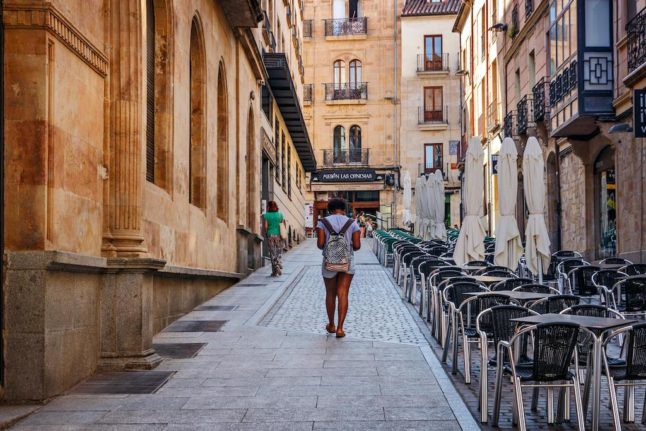Labour Day, called Día Internacional de los Trabajadores in Spain, takes place on May 1st every year. This year it falls on a Wednesday.
It is considered a holiday in all regions across Spain, so no matter where you live in the country you will most likely have this day off work or school.
Schools, most businesses and many shops will also be closed on this day, but what exactly will stay open?
READ ALSO: Is May 1st a public holiday in Spain?
Supermarkets
Many supermarkets will be closed in Spain on May 1st, so if you need to stock up on food, it’s best to do it on Tuesday, April 30th instead. There are, however, some
Mercadona
Spain’s largest supermarket chain will be closed on Wednesday in locations across the country.
El Corte Inglés
The El Corte Inglés supermarkets, as well as the department stores will close in all regions on Wednesday, May 1st.
Carrefour
The French supermarket giant has many branches across Spain, but whether they remain open or not will depend on the individual stores as all of them have different opening hours and schedules.
Día
Día will open some of its stores in larger cities around the country for specific hours on Wednesday, typically from 9:30am to 3pm.
Lidl
Like Dia, Lidl will open some of its stores only and mainly from 9am to 3pm only.
Alcampo
Alcampo supermarkets are open every day of the year, including Sundays and holidays. During public holidays, however, many will have special hours and will close at 8pm.
Will pharmacies in Spain be open on Labour Day?
Your nearest farmacia or pharmacy may be open on May 1st, but it will depend on where you live and their individual rules. Some pharmacies may open for special holiday hours, which is usually 9am-2pm, though it will depend on the individual branch. Others may be closed and only have one main branch open in your neighbourhood.
Will bars and restaurants be open during the holiday?
Bars and restaurants typically decide themselves with regards to opening hours on public holidays, but generally most should stay open.
Local bars might be closed, but bigger restaurants and chains will likely stay open. In some regions that have a puente or extended holiday like in Madrid, some local bars and restaurants may close for a few days.
Will schools be open in Spain on Labour Day?
No, all schools across the country will be closed and students will have a day off. In addition, schools in Madrid, Asturias, Cantabria and Navarra will also be closed on Thursday, May 2nd and Friday, May 3rd.
Students in all other regions are expected to return to school after just a one-day holiday, unless they have communicated otherwise.
Gyms
It may be a day off from work, but many people like to spend their down-time working out.
Gyms, unless they are municipal ones, usually operate privately and therefore will decide on their own hours and decide if they will stay open or not.
What about on the other May ‘puente’ holiday days?
Thursday May 2nd and Friday May 3rd have been declared regional school holidays in Asturias, Cantabria and Navarra. This means workers could take these two days off to get a five-day break. As it relates to school holidays and they aren’t regional holidays, many supermarkets are shops are likely to be open.
The exception is the regional holiday in Madrid on May 2nd, which commemorates the day in 1808 when the population rose up against Napoleon’s troops in the Peninsula War. That means that supermarkets such as Mercadona, Alcampo and Día will be closed, although you will still find that Supercor/Hipercor and Carrefour Express in the city are open with reduced hours.
It’s also El Día de la Cruz or Day of the Cross on Friday May 3rd in Granada, Córdoba and Almería, as well as in Santa Cruz and Puerto de la Cruz on Tenerife, so don’t expect many stores and supermarkets to be open in these places on this day.
On Saturday May 4th all shops and businesses will be open as usual across Spain, and on Sunday they be will be closed except for in tourist areas.



 Please whitelist us to continue reading.
Please whitelist us to continue reading.
Member comments